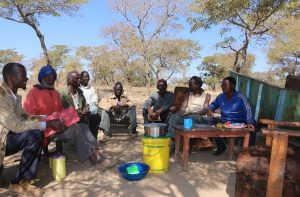With our field work stalled by social unrest in Zambia and then the global COVID-19 pandemic, we decided to seize this opportunity to reflect on what we have accomplished in two years of work in Zambia’s Kalomo district with the initiative Collaborating to Operationalise Landscape Approaches for Nature, Development and Sustainability (COLANDS).
Before the project’s first full Kalomo District Council meeting in October 2018, rumors were flying about what the project might involve. We heard, for example, the incorrect rumor that COLANDS involved tree-planting, triggering speculation about finding land for this purpose.
Matters became clearer in the following months amid our preliminary study missions at chiefdom and district levels with development policy interventions and resource management scenarios. At the same time, the Zambia office of the Center for International Forestry Research (CIFOR) – host of COLANDS – introduced the research project to leaders and authorities at the provincial, district and chiefdom level.
Clarity improved further in 2019 with multiple stakeholder engagement activities covering both biophysical and social themes. A reconnaissance survey in February 2019 revealed the general land degradation associated with both legal and illegal human settlement on state lands — protected forest reserves — and iconic customary sites, including sacred groves, (Malende in the Tonga language) some of which are national heritage sites, such as Maanzi Abila or Bbilili Hot Springs.
Read the full article here.
